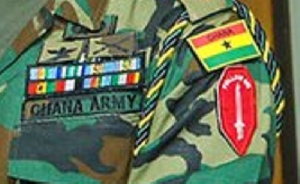Accra, 27, GNA- The total operational cost of the Metro Mass Transit (MMT) Company, as at December 2003, was a little over 20 billion cedis representing 91 per cent of operating income with 9 per cent as margin.
The operating cost, constitute fuel, lubricants, repairs, maintenance, staff, financial and administration among others. Dr Richard W. Anane, Minister of Roads and Transport announced these in Parliament when answering questions on Wednesday.
Mr Emmanuel Zumakpeh NDC-Nadowli South, asked the Minister on behalf of Mr. Edward K. Salia NDC-Jirapa what organisational form was being used to operate the MMT including the total operating costs of the buses and how much was being subsidy on the fares.
Dr Anane said the MMT was a limited liability company incorporated in March 2003, with the Ministry of Roads and Transport and the Ministry of Local Government and Rural Development representing government's interest of 45 per cent.
The remaining 55 percent was owned by Social Security and National Insurance Trust (SSNIT), National Investment Bank (NIB), the State Insurance Company Limited (SIC), and Prudential Bank.
Dr Anane said currently the MMT was running without operational losses and in order to ensure the sustainability of the mass transit programme, support in the form of a subsidy would be required. "Scheduled mass transportation services oil the economy, decongest our streets and enhance the environment and it is expected that when the programme is fully operational from the middle of 2004, local authorities will be providing this support."
He said the company was currently preparing a framework for the financing of its operations with respect to issues such as, fleet renewal, operational subsidies and infrastructural needs.
The Minister said the fares for the express service in Accra zone, Accra-Tema, Accra-Kasoa were 2,000 cedis while the Kumasi zone ranges between 2,000 to 4,000 cedis.
To another question as to whether the buses imported for mass transportation were new or second-hand and who runs them, Dr Anane said the company had 164 second-hand Fiat-Iveco buses donated by the Italian Government while 75 new DAF/Neoplan chassis were imported from Holland under the Dutch Government concessionary financing agreement. The Minister said plans were far advanced for the purchase of 250 buses from China and that 50 of these buses have been paid for and were expected to be delivered by the end of the first quarter of this year. Later three Bills were presented and taken through the first reading. They were the Development and Classification of Film Bill, University of Education, Winneba Bill and the Value Added Tax (Amendment) Bill.
These papers were also laid the Passport and Travel Certificates (Fees) (Amendment) Instrument, 2003, L.I. 1736, and the Stability Agreement between the Government and Anglo-Gold Limited of the South Africa.
Business News of Tuesday, 27 January 2004
Source: GNA
Metro Mass Transit made 20 billion cedis as operational cost
Entertainment











